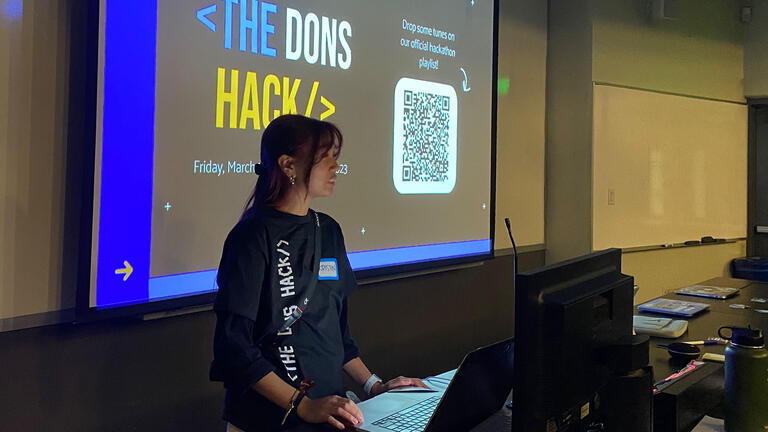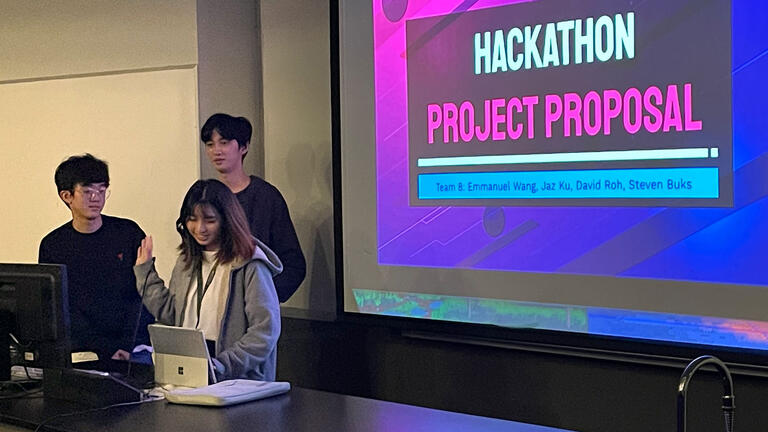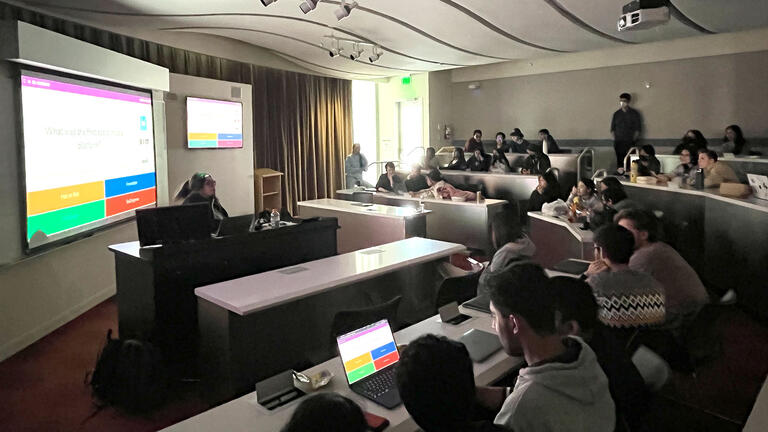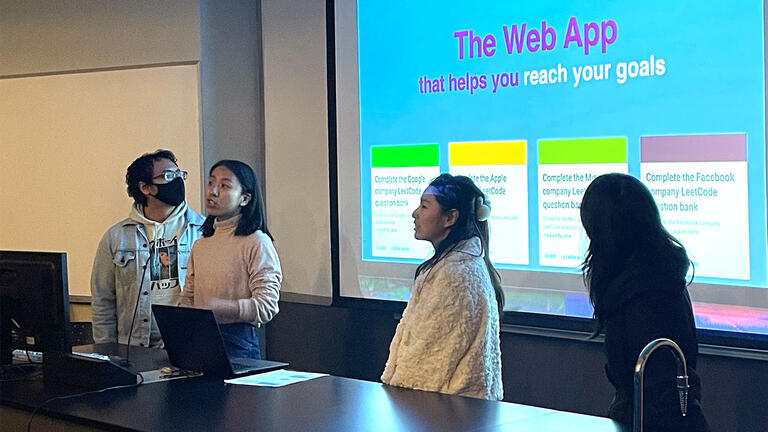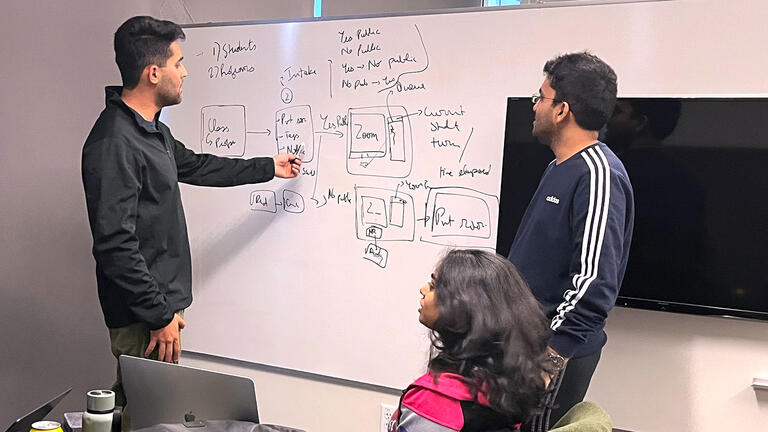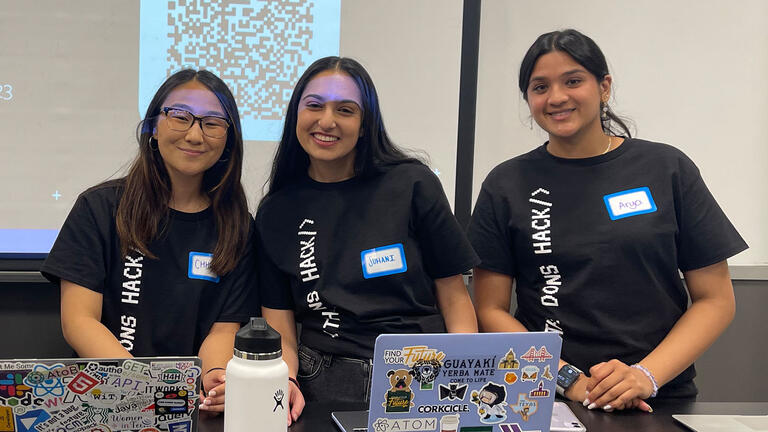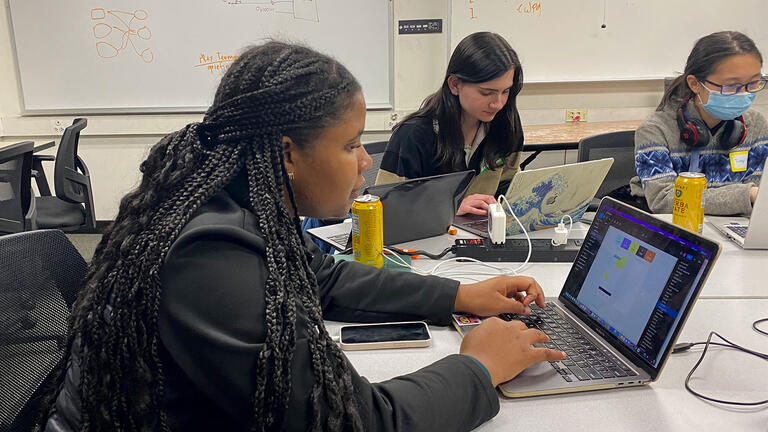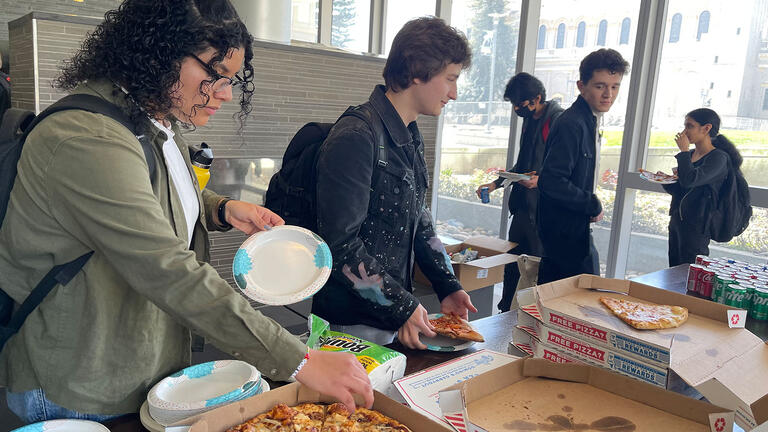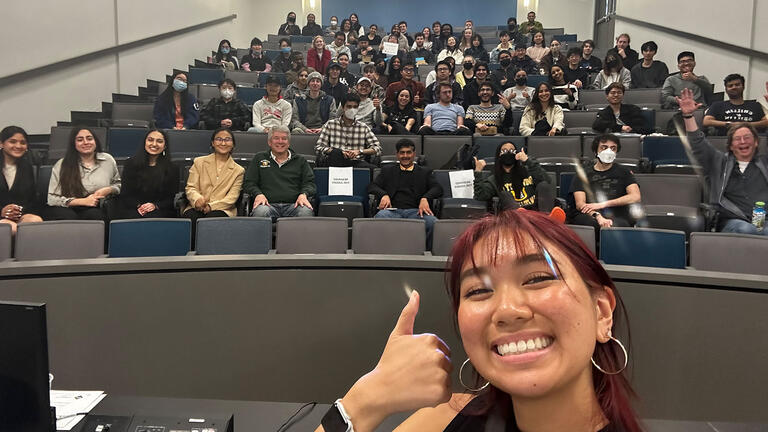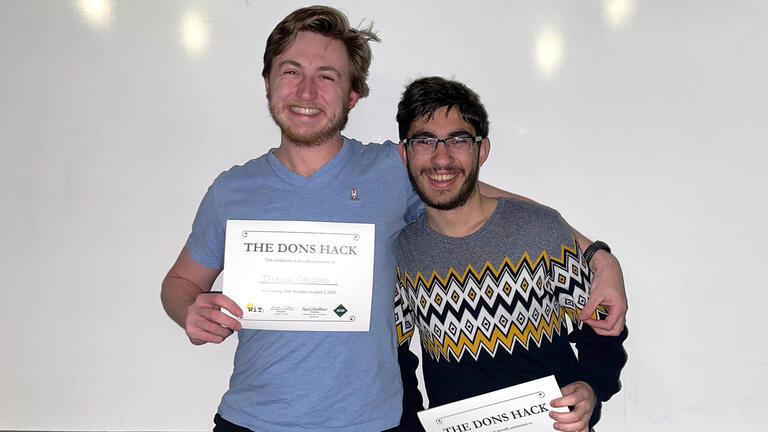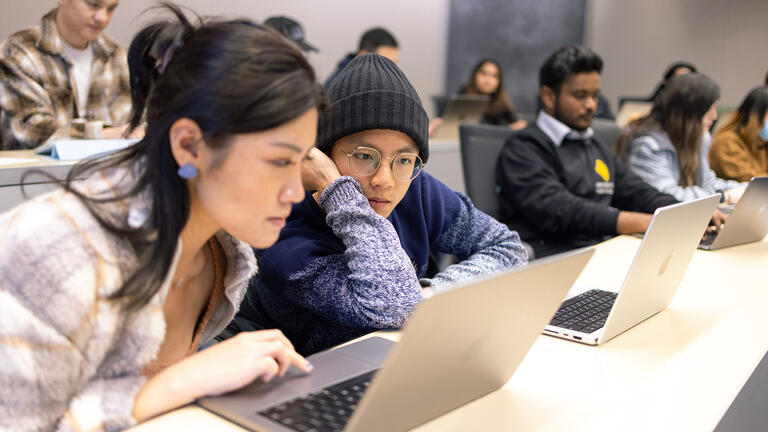
Capstone Project
The Capstone course gives students the opportunity to work on real-world projects with tech companies in the Bay Area and Silicon Valley, or with an academic organization on a research project. The course is similar to an internship, but with the added bonus of academic guidance and access to the department’s resources. It’s a great way for students to apply classroom knowledge in a practical setting, and to make contacts in the industry as graduation nears.
Capstone projects begin in August and January. At the beginning of the semester, potential sponsors pitch projects. Students form teams of 3 to 5 members and begin the software development process. Guided by faculty, industry, and non-profit sponsors, students work on their capstone project 10-15 hours a week for 15 weeks. Students gain the experience and confidence to land the jobs that they want doing what they love. Some obtain jobs with the company they work with or from the contacts they make — jump-starting their careers even before putting on their caps and gowns.
Our Projects
-
Working alongside Consilient Labs, an AI startup focused on memory-based learning, students keep engineers and customers in mind when they built a user-friendly dashboard to simplify use of the current API. The dashboard uses the Angular framework, D3 for visualizations, and Bootstrap for structure — and contains functionality for user authentication, uploading data to the knowledge engine, making queries about that data, and viewing status information about the knowledge engine itself.
-
Students built dynamic dashboards and interactive data visualization tools to help BART engineers identify and correct platform sign inaccuracies. They took a data-driven approach to improving platform sign accuracy by using Splunk to process and analyze train log data to identify recurring conditions associated with sign inaccuracy — allowing BART analysts to take a closer look at cases where inaccurate delay data occur, show how often they occur, and which trains and platforms are susceptible to these issues.
-
Students developed Carbon in Context, a tool that translates greenhouse gas emissions into relatable comparisons to improve public understanding of climate data. By converting figures like gigatons of CO₂ into everyday equivalents, the tool helps prevent greenwashing and miscommunication. The project was supported by Project Drawdown, a leading climate solutions organization.
-
EdgeX Foundry is an open-source platform supported by VMware that provides an infrastructure to build and deploy IoT applications. Utilizing a custom EdgeX instance on a Raspberry Pi, the student team's project FaceX provides users with an IoT application that performs facial recognition of pictures taken by a camera module connected to a Raspberry Pi. FaceX analyzes pictures for faces using a convolutional neural network and then pushes its result to a web service that displays information about the matching individual. The main goal is to implement a keyless entry system. This system will be deployed as an open-source software package that anyone can download and deploy to a Raspberry Pi with a camera module to provide a facial-recognition based entry system for a home, shelter, facility, or other restricted-access environment.
-
Students contributed to Nuff Cash, a fintech project sponsored by Qualcore Innovations, by developing a machine learning model to enhance the existing mobile app. Using algorithms like XGBoost, Random Forest, and Isolation Forest, the model analyzes user transaction behavior to detect spending patterns, flag anomalies, and generate alternative credit scores—particularly for unbanked or underbanked individuals. Integrated via API, the model delivers real-time, personalized financial insights to help users budget and manage their finances. The project supports Nuff Cash's mission to improve financial inclusion by digitizing cash transactions while preserving their flexibility.
-
Action for Racial Justice (ARJ) is a non-profit organization that helps justice-minded people learn about race issues and press for policies with equitable outcomes. Reading for Racial Justice is a sub-service of ARJ, specifically a book club application that helps form communities of activists to learn more about the history and principles of what they are fighting for. Once users are logged in to the ARJ service they can navigate to their dashboard to view their active clubs, create or join a new club based on a specific book, goals, or interests, and view short descriptions of the books available to them. Students used React on the front-end and Golang in the back-end with a MySQL database.
How Can Your Organization Participate?
Interested in working with a group of highly motivated and committed students from USF’s Computer Science department?
The Dons Hack 2023
USF student groups Women in Tech (WiT) and the Association for Computing Machinery (ACM) hosted a hackathon in April. The theme this year was Ed-Tech, a field of technology centered around enhancing students' learning experiences both inside and outside the classroom. It was a weekend of coding, designing, and brainstorming that included workshops, alumni panel and networking opportunities for CS students.
